Lankan women gain recognition but gender equality is still a far cry
Posted on March 7th, 2021
By Gitanjali Marcelline/newsin.asia
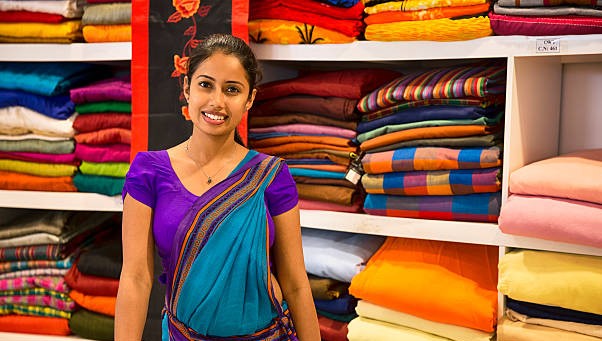
International Women’s Day, originally called International Working Women’s Day, is marked on March 8 every year. The UN theme for Women’s Day in 2021 is Women in Leadership: Achieving an equal future in a COVID-19 world”. The theme celebrates the tremendous efforts made by women and girls around the world to make the post-COVID-19 world more equal than it has been so far.
The way I see it, equality begins at home with the responsibility of raising the children and doing household chores shared equally between husband and wife. Currently, in most households, there is a major disparity in this area, mainly due to stereotyping and patriarchal attitudes, where the husbands are of the firm belief that it is the wives sole responsibility to raise the children and attend to housework.
The reality of the matter is that the wife for a day works on 4 shifts! Yes, you heard me right, 4 shifts. It starts at dawn by preparing breakfast and lunch, getting the children ready for school, attending to laundry, getting ready to go to work, seeing or dropping the children off to school (1st shift). Then concentrating on her 8 – 5 job (2nd shift). Upon returning home, she has to iron the laundered clothes, fold them, supervise the children’s homework (or e-class), fix dinner and do the dishes (3rd shift). Whereas, the husband, once he comes home showers and is all fresh to watch TV or get on his phone on social media, or goes to meet his friends. He comes home to dinner and retires to bed ready to claim his conjugal rights, whereas the poor woman by then is dead beat! (4th shift) And if she doesn’t oblige, God forbid! It results in an argument, domestic violence, infidelity or divorce.
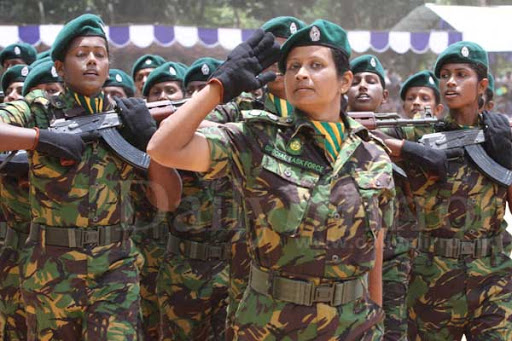
According to the UN, this year is like no other. Even before COVID-19 hit, violence against women and girls had reached pandemic levels. Globally, 243 million women and girls (Sri Lanka included), were abused by an intimate partner in the past year. Meanwhile, less than 40 per cent of women who experienced violence reported it or sought help. As countries implemented lockdowns to stop the spread of the coronavirus, violence against women, especially domestic violence, intensified. In some countries, calls to help lines have increased five-fold. In others, formal reports of domestic violence have decreased, like in Sri Lanka, as survivors find it harder to seek help and access support through the regular channels. School closures and economic strains left women and girls poorer, out of school and out of jobs, and more vulnerable to exploitation, abuse and harassment.
For women, achieving an equal future, leave alone in a Covid-19 world, in a normal world has been hard. In the context of political participation, in Sri Lanka, despite having had two female leaders (Mrs. Sirimavo Bandaranaike as Prime Minister and Chandrika Kumaratunga as President) and that too from the sympathy vote, women are marginalized owing to the general perception that they lack desirable traits to engage in the political and decision-making process. Such attitudes are more apparent in the South Asian region, Sri Lanka included. Women are not encouraged to empower themselves and develop confidence in their capacities, but discouraged from involving in the political/decision-making process and engaging in healthy discussions relating to issues which affect them and children.
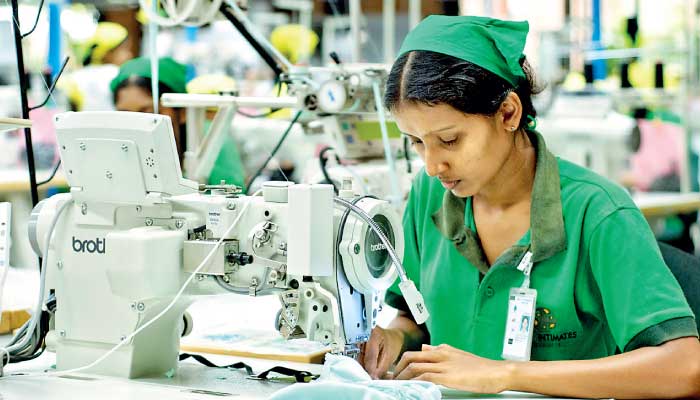
The reality relating to quotas for women’s representation in Parliament and local government in Sri Lanka is that, currently a very low percentage has been allocated (4.4%), which means there are very few women Parliamentarians. Although said to be having equal participation in the decision-making process, this is not really the case. If at all, the current Parliament has only 10 female legislators out of its 225 members! They are subjected to discriminatory practices and stereotyping.
Although the Women’s Caucus in Parliament forwarded a Memo several years ago suggesting increased representation of women in Parliament, nothing has come of it. If at all it has remained a dismal 4%. India has 78 members in Parliament (14.3%), Pakistan has 20.2%, Bangladesh 19.7%. Whilst it is heartening to note that some of the members of the Women’s Caucus in Parliament have spoken for the rights of the recently appointed woman Deputy Inspector General of Police and submitted a motion seeking the Public Services Commission to probe gender-based discrimination, so far I have not heard, leave alone a roar, even a whimper from them regarding the non-increase of women’s representation in Parliament to at least 25% (ideally 50%), so that they can raise their voices on issues which affect them such as sexual and reproductive health, decent work, children’s health, education, etc.
Like I said before, in this era of Covid-19 pandemic, School closures and economic strains have left women and girls poorer, out of school and out of jobs, and more vulnerable to exploitation, abuse, forced marriage, and harassment.
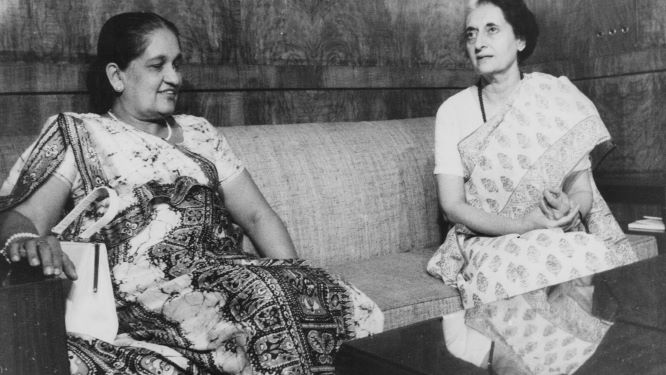
Brighter Side
Yet, there have been tremendous strides in the workplace where women’s leadership is concerned. Since March 2011, Women in Management, Sri Lanka, have been conducting the ‘Professional and Career Women Awards’ celebrating the achievements of remarkable women who inspire those around them.
This year’s ‘Top 50’ awards also saw a special appreciation of those who helped combat COVID-19 in 2020, specifically during the height of the pandemic. These special appreciation awards went to the Sri Lanka Police, Sri Lanka Army, Public Health Officers and Medical Practitioners for their contribution as part of the COVID-19 taskforce in Sri Lanka, risking their lives. Yet, it is unfortunate that one of the award recipients, the newly appointed first woman Deputy IGP, Bimshani Jasin Arachchi’s promotion was not viewed well by some of her male colleagues who had gone to court over the matter. Spoil Sports!
Neelika Malaviga, a professor at the University of Sri Jayawardhanapura and a visiting professor at the University of Oxford walked away with the award for Inspirational Women of the Year (COVID-19 category) for her contribution in COVID-19 research. Top awards were also presented to women leaders from a cross section of industries. Notable was the award given to Hiran Cooray, Chairman of Jetwing Symphony for being the Male Champion of Change. This, I think is a commendable feature – a male being a change agent for women in leadership roles. Three cheers! for the gentleman concerned.
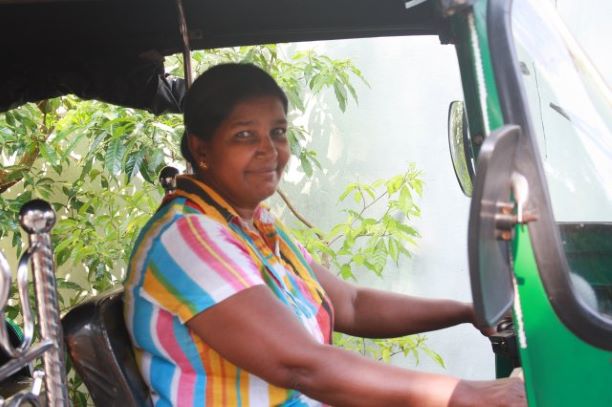
Yet, there have been tremendous efforts by women and girls around the world in shaping a more equal future and recovery. Some have engaged in efforts such as helping husbands who lost their jobs, owing to the companies they worked for downsizing or going bankrupt, by starting SME’s such as food catering services, small sewing units, etc. to help make ends meet. I once had a gentleman deliver food in a Mercedes! His story was that he had been a top executive in a mercantile firm, used his privileges and taken housing loans, car loans, etc. Owing to the Covid-19 situation the company downsized and he suddenly found himself out of job with a huge debt burden in his hands. Since in this scenario it was difficult to find another job and in order to make ends meet, the wife had started a food catering service.
Last, but not least, in the legal sphere too, Judges have an equal or more responsibility to ensure parity by adopting a functional and practical approach promising justice and equality in the law and to better ensure that the law meets the reasonable expectations of both men and women.